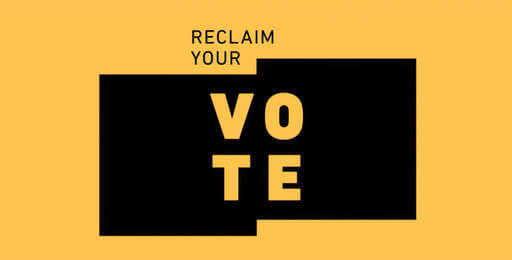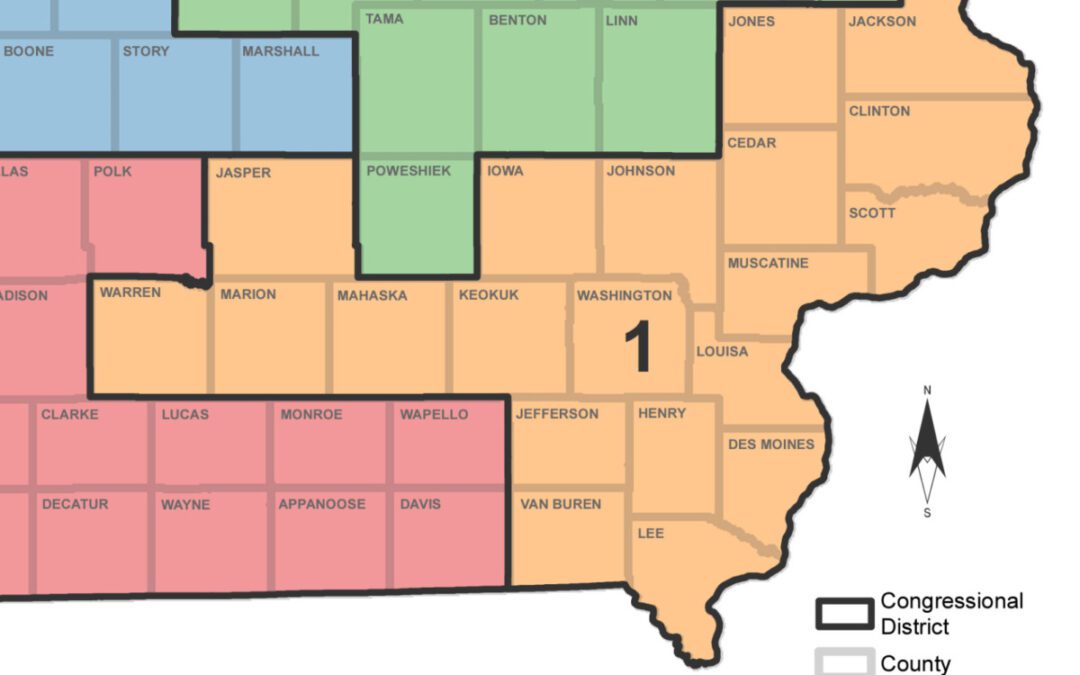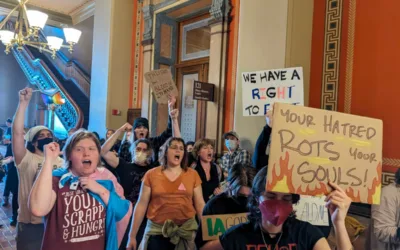
If you’ve been convicted of a felony charge in Iowa, but you’ve served your time, you could be eligible to vote this November.
Whether those who have a felony on their record can vote, and when that happens, varies widely across the US:
- In three places (Maine, Vermont, Washington DC), you never lose your right to vote.
- In 23 states, you only lose the right to vote while incarcerated, and that right is automatically restored once you’re released.
- In 15 states, you lose the right to vote while you are incarcerated and while serving parole or probation, but that right is automatically restored once you’re done with probation or parole.
- In the remaining 10 states, you lose the right to vote until all of the above happens, as well as additional hoops like (in Iowa’s case) a governor’s pardon.
Iowans find themselves in that last category, which means it takes a bit more work to get your right to vote restored.
Prior to August of 2020, all Iowans with felony convictions had to apply directly to the governor’s office to get their voting rights restored; Iowa was the last state to mandate this. (Some still have to do this; see below for those special cases.)
But that’s gotten a bit easier since 2020, when Iowa Gov. Kim Reynolds—swayed by arguments made by Black Lives Matter activists in the midst of George Floyd protests—instituted a sped-up process.
You’ll still need her official pardon, but the governor says that’s now done on a daily basis based on information from the Department of Corrections, rather than making former felons apply for their rights back individually.
That means, if you’ve done your time, you should be automatically eligible to vote.
“The right to vote is the cornerstone of society and the free republic in which we live,” Reynolds said.
At the time, Reynolds said her executive order would be a temporary fix, noting she would “continue to advocate for a constitutional amendment” to “have (Iowans’) right to vote restored automatically.”
Such an amendment has not yet passed the Iowa Legislature, even though the Legislature has been controlled by Reynolds’ Republican Party in the intervening years.
Here’s how to find out if you’re eligible to vote after your conviction, and how to go vote!
How do I find out if I have a felony?
The easiest way is to look yourself up on Iowa Courts Online, a database of charges and convictions in Iowa. Most searches on the platform are free.
Click on Trial Court Case Search, then enter your name to find a list of cases. If your name has changed over the years, make sure to search all of your previous names.
Don’t be alarmed to see non-criminal cases on your “record.” Your file can include moving vehicle violations like speeding tickets, civil cases like divorces and custody battles, small claims court, and more. None of that matters for this. You’re looking for case numbers that start with “FEC,” a code the state uses to mean a felony charge.
For the purposes of voting in Iowa, this includes felonies in Iowa as well as federal felony convictions and felony convictions in other states. (Charges outside of Iowa will not show up in Iowa Courts Online. Find the federal case search database here.)
If you’re still not seeing your case, call your county’s clerk of court for help.
What about misdemeanors or deferred judgments?
Only those with felony convictions that were not deferred lose their right to vote in the first place.
If you’ve been convicted of a lesser crime, including all misdemeanors (aggravated, serious, and simple), you never lost your right to vote.
Additionally, if you’ve been convicted of a felony but were given a deferred judgment in your case, you never lost your right to vote. And if you’re in the middle of a felony case, but haven’t yet been convicted, you still have the right to vote.
What if it’s a Chapter 707 felony?
Gov. Reynolds carved out an exception in her executive order for those convicted of felonies under Iowa Code Chapter 707, which covers everything from homicide to convictions under Iowa’s six-week abortion ban.
For those convicted of a Chapter 707 felony, an extra step is still required: You must apply to get your right to vote restored.
Click here to print off the Application for Restoration of Voting Rights. You’ll need to fill it out and mail it to the governor’s office. Do it soon, and you may be able to vote this year!
How do I know if I’ve done my time?
Here’s what completion of your sentence means in Iowa:
- All terms of confinement (jail or prison);
- All parole, probation or other supervised release;
- Completion of any special sentences (for certain sex offenses), if applicable, under Iowa Code Chapter 903B.
If a judge has said you are off probation, then you’ve done your time.
You do not need to have paid off all of your court costs or fines to get the right to vote back. However, in order for a judge to release you from probation, you at least need to have a payment plan for those costs. Click here for more information on how Iowa releases you from probation.
If you’ve done your time, you can now register to vote!
Register to vote, and vote!
Now that you know you’re eligible to vote, you can register to vote, and vote like every other citizen! (Want to make sure you’re good? Take this quick survey on Iowa’s voter website.)
Learn how to register to vote in Iowa here.
Here’s how to vote early or absentee in Iowa.
Here’s how to vote at the polls on Nov. 5, 2024.
For a complete guide on how to vote in Iowa, click here for Iowa Starting Line’s Iowa Voting Guide.
Support Our Cause
Thank you for taking the time to read our work. Before you go, we hope you'll consider supporting our values-driven journalism, which has always strived to make clear what's really at stake for Iowans and our future.
Since day one, our goal here at Iowa Starting Line has always been to empower people across the state with fact-based news and information. We believe that when people are armed with knowledge about what's happening in their local, state, and federal governments—including who is working on their behalf and who is actively trying to block efforts aimed at improving the daily lives of Iowan families—they will be inspired to become civically engaged.


Christina Bohannan calls for recount of ‘razor-thin’ Iowa congressional race
Democrat Christina Bohannan is calling for a recount of all 20 counties in Iowa’s 1st Congressional District. There is an 800-vote margin that...

Election fatigue? Here’s how to recharge your mental health
We all have our personal struggles in life, from work stress to relationship drama, but something about the 2024 election season simply felt...

Three key takeaways from the Miller-Meeks-Bohannan results
As we take stock of what happened in 2024 and prepare for the road ahead, the results in the 1st Congressional District show some interesting...

Harris says nation must accept election results while urging supporters to keep fighting
Harris delivered her remarks at Howard University, her alma mater and one of the country's most prominent historically Black schools, in the same...

Aime Wichtendahl makes history again, first trans woman elected to Iowa House
Iowa's first-elected transgender woman, Aime Wichtendahl, made history a second time when she won a seat in the Iowa Legislature. Wichtendahl, a...

We care for us: Iowa places to support as another Trump presidency looms
We care for us: That's the message we want Iowans to carry with them in the immediate aftermath of the election, instead of despair. Starting Line...




